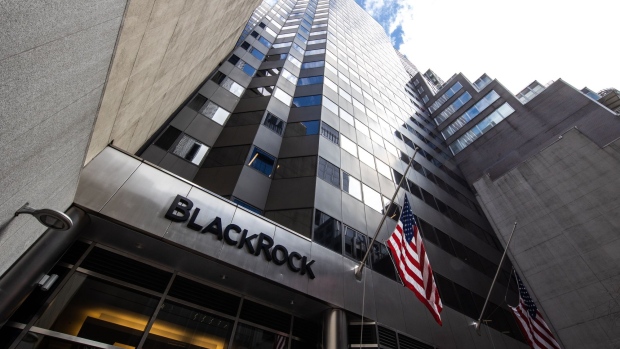Oct 17, 2022
BlackRock’s Miller Sees More Stress in Leveraged Markets Post-UK
, Bloomberg News

(Bloomberg) -- The recent tumult in the UK government bond market is likely to be repeated where leveraged strategies are in place, said BlackRock Financial Management Inc.’s Bob Miller.
“When you tighten financial conditions this aggressively, this abruptly, things are going to break,” the firm’s head of Americas fundamental fixed income said on Bloomberg Television’s Surveillance on Monday. “Where do they break first? Almost always, it’s in the levered strategy.”
UK pension funds had been using an approach known as liability-driven investment, or LDI, to hedge against declines in government bond yields. The leveraged strategy backfired in late September when yields jumped, revealing a big risk in the country’s financial system.
The sudden shift in UK sovereign debt followed the government’s Sept. 23 announcement of unfunded tax cuts and increased state spending. When many pension funds didn’t have enough cash to cover losses on their LDI hedging strategies, they had to sell liquid assets including government bonds, known as gilts. On Monday, the government reversed course on its stimulus plan to help stabilize the market.
“The push toward a much more aggressive fiscal policy kicked off more pressure in an already-deteriorating market,” Miller said. “But the proximate cause of the real stress was the levered LDI business model. If you have to borrow to sustain your strategy and you have to pay higher margin costs to maintain your leverage, you’re in a really difficult spot right now. I wouldn’t be surprised if we don’t see some more of that over the next three to six months.”
This year’s interest rate increases from inflation-fighting central banks, led by the US Federal Reserve, are causing borrowing costs to rise worldwide. Even high-quality companies are being forced to pay higher than anticipated rates, Miller said.
“The all-in cost of capital has gone up substantially. In the investment-grade space, you’re talking about an index that’s now a 6% yield,” he said. “In the high-yield space, you’ve got companies that were funding a year or year and a half ago at 4% to 5% that now can’t get funded inside of 10% and may not be able to fund at all.”
To be sure, the volatility opens opportunities for fixed-income investors seeking returns, the BlackRock strategist said.
“You can build a pretty reasonable portfolio -- Treasuries, agency mortgages, investment grade corporates. You can avoid some of the more stressed or potentially forward-distressed names,” Miller said. “You can build a high-quality portfolio, intermediate maturity in the 5% to 6% range, including Treasuries. We haven’t been able to do that in nearly two decades. There’s more stress to come, but things are starting to look reasonable.”
©2022 Bloomberg L.P.





